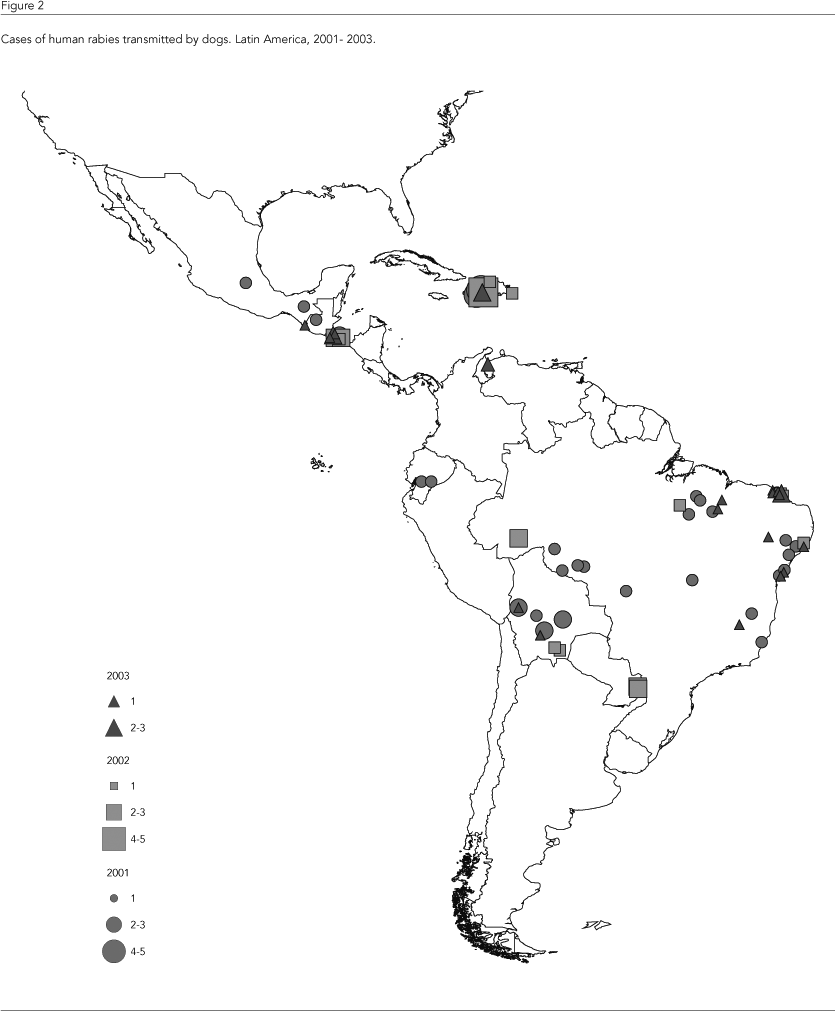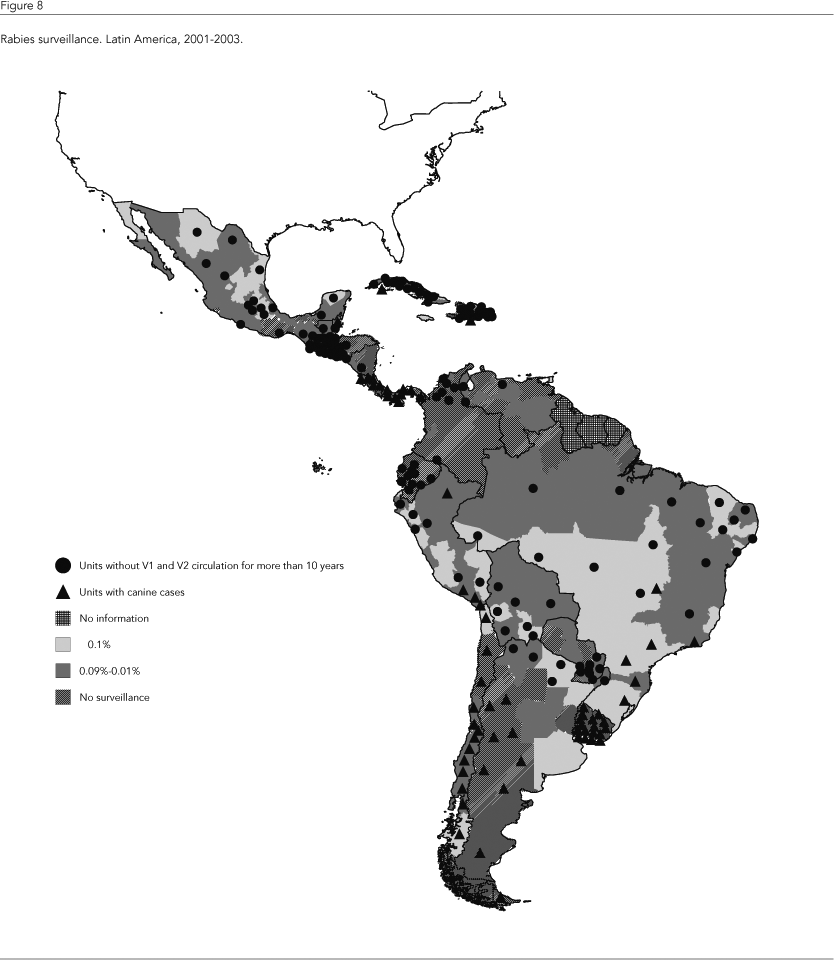Latin American countries made the political decision to eliminate human rabies transmitted by dogs by the year 2005. The purpose of the current study is to evaluate to what extent this goal has been reached. The epidemiological situation and control measures were analyzed and broken down within the countries by georeferencing. The 27 human cases reported in 2003 occurred in some 0.2% of the second-level geopolitical units (municipalities or counties) in the region, suggesting that the disease is a local problem. Several areas within the countries reported no more transmission of rabies in dogs. Nearly 1 million people potentially exposed to rabies received treatment. On average, 34,383 inhabitants per health post receive anti-rabies treatment (range: 4,300-148,043). Nearly 42 million dogs are vaccinated annually. Surveillance is considered fair according to the epidemiological criteria adopted by the study. Samples sent for rabies testing represent 0.05% of the estimated canine population (range: 0.001 to 0.2%). The countries are quite close to achieving the goal.
Rabies; Dogs; Rabies Vaccines; Epidemiologic Surveillance








